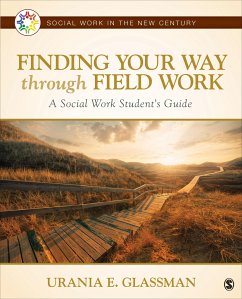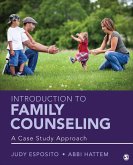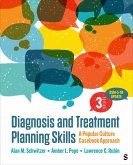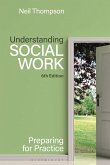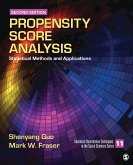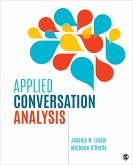- Broschiertes Buch
- Merkliste
- Auf die Merkliste
- Bewerten Bewerten
- Teilen
- Produkt teilen
- Produkterinnerung
- Produkterinnerung
This book is a guide for students progressing through field work to help them review key skills and reinforce their field learning experience.
Andere Kunden interessierten sich auch für
![Anti-Oppressive Social Work Practice Anti-Oppressive Social Work Practice]() Karen L. MorgaineAnti-Oppressive Social Work Practice179,99 €
Karen L. MorgaineAnti-Oppressive Social Work Practice179,99 €![Introduction to Family Counseling Introduction to Family Counseling]() Judy F. EspositoIntroduction to Family Counseling177,99 €
Judy F. EspositoIntroduction to Family Counseling177,99 €![Diagnosis and Treatment Planning Skills Diagnosis and Treatment Planning Skills]() Alan M. SchwitzerDiagnosis and Treatment Planning Skills149,99 €
Alan M. SchwitzerDiagnosis and Treatment Planning Skills149,99 €![Understanding Social Work Understanding Social Work]() Neil ThompsonUnderstanding Social Work39,99 €
Neil ThompsonUnderstanding Social Work39,99 €![A Primer on Partial Least Squares Structural Equation Modeling (PLS-SEM) A Primer on Partial Least Squares Structural Equation Modeling (PLS-SEM)]() Joe HairA Primer on Partial Least Squares Structural Equation Modeling (PLS-SEM)80,99 €
Joe HairA Primer on Partial Least Squares Structural Equation Modeling (PLS-SEM)80,99 €![Propensity Score Analysis Propensity Score Analysis]() Shenyang GuoPropensity Score Analysis163,99 €
Shenyang GuoPropensity Score Analysis163,99 €![Applied Conversation Analysis Applied Conversation Analysis]() Jessica Nina LesterApplied Conversation Analysis121,99 €
Jessica Nina LesterApplied Conversation Analysis121,99 €-
-
-
This book is a guide for students progressing through field work to help them review key skills and reinforce their field learning experience.
Hinweis: Dieser Artikel kann nur an eine deutsche Lieferadresse ausgeliefert werden.
Hinweis: Dieser Artikel kann nur an eine deutsche Lieferadresse ausgeliefert werden.
Produktdetails
- Produktdetails
- Social Work in the New Century
- Verlag: SAGE Publications Inc
- Seitenzahl: 264
- Erscheinungstermin: 25. November 2015
- Englisch
- Abmessung: 228mm x 186mm x 14mm
- Gewicht: 454g
- ISBN-13: 9781483353258
- ISBN-10: 1483353257
- Artikelnr.: 42993485
- Herstellerkennzeichnung
- Libri GmbH
- Europaallee 1
- 36244 Bad Hersfeld
- gpsr@libri.de
- Social Work in the New Century
- Verlag: SAGE Publications Inc
- Seitenzahl: 264
- Erscheinungstermin: 25. November 2015
- Englisch
- Abmessung: 228mm x 186mm x 14mm
- Gewicht: 454g
- ISBN-13: 9781483353258
- ISBN-10: 1483353257
- Artikelnr.: 42993485
- Herstellerkennzeichnung
- Libri GmbH
- Europaallee 1
- 36244 Bad Hersfeld
- gpsr@libri.de
Urania Ernest Glassman, MA, MSW, DSW, LCSW Dr. Glassman's role as director of field instruction spans 30 years. Her social work specializations are field education, group work, and clinical practice. She is currently Principal Investigator of a $1.4 million grant from the U.S. Department of Health and Human Services - HRSA for Wurzweiler School of Social Work Yeshiva University to train 2nd year students in clinical field placements with high risk adolescents and transitional age youth. Her recent volume with Sage, Group Work: A Humanistic and Skills Building Approach 2nd Ed., provides underpinning for the training design. Dr. Glassman maintains a long-standing clinical practice with individuals, families, and groups. She has written and presented papers on field education processes and experiential learning, training field educators, group work, and clinical practice. Dr. Glassman served on the Council on Social Work Education Commission on Educational Policy during the time when social work competencies were defined and field education as social work's signature pedagogy was branded. She was instrumental in the development of CSWE's field education symposium - now the field education track, co-founder of NANFED - North American Network of Field Educators and Directors, and of the NYC Red Apple Chapter of the International Association of Social Work with Groups, and has served as chair of these initiatives.
Chapter 1: Introduction To Field Work: Experiential Education
Developing Competency in Field Work
How to Maximize Experiential Learning in the Field
Framework of This Text
Chapter 2: Student Qualities and the Transformational Process
Elements That Students Bring to Field Work
Transformation in Field Work
Five Elements of Field Work
Chapter 3: Securing Agency Acceptance
Agency Endorsement of Student as Worker With Clients
Preparing for Initial Agency Meeting
The Initial Agency Meeting
Qualities That Agencies Are Looking For
Barriers to Acceptance By the Agency
Chapter 4: Developing Social Work Competencies
Getting Started on the Right Foot at Field Placement
Field Education as the "Signature Pedagogy" of Social Work
Social Work Competencies and Practice Behaviors
Social Work Competencies and Your School's Curriculum: Foundation Field
Work
Social Work Competencies and Your School's Curriculum: Second-Year Field
Work
Chapter 5: The Relationship Between Field Instructor and Student
Roles of Field Instructors
Roles of Students
Chapter 6: Process Recording and Other Educational Tools
Purpose of Process Recording
Outline for Narrative Process Recording
Additional Formats for Process Recording
Further Educational Tools
Chapter 7: The Relationship Between Faculty Field Advisor and Student
Faculty Field Advisor's Roles
Roles of Students
Chapter 8: Timelines for Student Development
BSW Program Field Work Timeline
MSW Program Timeline for Field Work
Challenges For All Students
Progression of Learning
Block Placement Designs
Chapter 9: Developing Social Work Competencies in the Foundation Year
Review of the Social Work Practice Competencies
First-Year Competency Development Exemplars
Moving Forward With Foundation Competencies
Social Work Code of Ethics as Foundation for Competent Practice
Chapter 10: Advancing Competencies in the Second Year
Getting Started
Second-Year Specialization Exemplars
Social Work Code of Ethics as Foundation for Competent Practice
Chapter 11: Employment and Field Placement at the Same Site
Guidelines For Developing A Field Placement Within Your Agency Of
Employment
Common Problems And Pitfalls
Chapter 12: Managing Stressful Relationships and Demands
Managing Stressful Relationships With Clients
Managing Stressful Relationships With Your Field Instructor
Managing Issues At The Agency
Managing Demands Of Family And Friends
Chapter 13: Utilizing Self-Awareness in Social Work Practice
Using Your History and Issues to Enhance Your Work
When Your Personal Issues Get in the Way
Managing the Countertransference and Transference (Hepworth, Rooney,
Rooney, Strom-Gottfried, & Larson, 2010)
Using Your History To Help Others
Chapter 14: Looking Toward the Future
Ending First-Year or Senior-Year Field Work
Transition from First- to Second-Year Field Work
Transition from BSW to Career or to MSW Program
Transition from MSW to Career
Developing Competency in Field Work
How to Maximize Experiential Learning in the Field
Framework of This Text
Chapter 2: Student Qualities and the Transformational Process
Elements That Students Bring to Field Work
Transformation in Field Work
Five Elements of Field Work
Chapter 3: Securing Agency Acceptance
Agency Endorsement of Student as Worker With Clients
Preparing for Initial Agency Meeting
The Initial Agency Meeting
Qualities That Agencies Are Looking For
Barriers to Acceptance By the Agency
Chapter 4: Developing Social Work Competencies
Getting Started on the Right Foot at Field Placement
Field Education as the "Signature Pedagogy" of Social Work
Social Work Competencies and Practice Behaviors
Social Work Competencies and Your School's Curriculum: Foundation Field
Work
Social Work Competencies and Your School's Curriculum: Second-Year Field
Work
Chapter 5: The Relationship Between Field Instructor and Student
Roles of Field Instructors
Roles of Students
Chapter 6: Process Recording and Other Educational Tools
Purpose of Process Recording
Outline for Narrative Process Recording
Additional Formats for Process Recording
Further Educational Tools
Chapter 7: The Relationship Between Faculty Field Advisor and Student
Faculty Field Advisor's Roles
Roles of Students
Chapter 8: Timelines for Student Development
BSW Program Field Work Timeline
MSW Program Timeline for Field Work
Challenges For All Students
Progression of Learning
Block Placement Designs
Chapter 9: Developing Social Work Competencies in the Foundation Year
Review of the Social Work Practice Competencies
First-Year Competency Development Exemplars
Moving Forward With Foundation Competencies
Social Work Code of Ethics as Foundation for Competent Practice
Chapter 10: Advancing Competencies in the Second Year
Getting Started
Second-Year Specialization Exemplars
Social Work Code of Ethics as Foundation for Competent Practice
Chapter 11: Employment and Field Placement at the Same Site
Guidelines For Developing A Field Placement Within Your Agency Of
Employment
Common Problems And Pitfalls
Chapter 12: Managing Stressful Relationships and Demands
Managing Stressful Relationships With Clients
Managing Stressful Relationships With Your Field Instructor
Managing Issues At The Agency
Managing Demands Of Family And Friends
Chapter 13: Utilizing Self-Awareness in Social Work Practice
Using Your History and Issues to Enhance Your Work
When Your Personal Issues Get in the Way
Managing the Countertransference and Transference (Hepworth, Rooney,
Rooney, Strom-Gottfried, & Larson, 2010)
Using Your History To Help Others
Chapter 14: Looking Toward the Future
Ending First-Year or Senior-Year Field Work
Transition from First- to Second-Year Field Work
Transition from BSW to Career or to MSW Program
Transition from MSW to Career
Chapter 1: Introduction To Field Work: Experiential Education
Developing Competency in Field Work
How to Maximize Experiential Learning in the Field
Framework of This Text
Chapter 2: Student Qualities and the Transformational Process
Elements That Students Bring to Field Work
Transformation in Field Work
Five Elements of Field Work
Chapter 3: Securing Agency Acceptance
Agency Endorsement of Student as Worker With Clients
Preparing for Initial Agency Meeting
The Initial Agency Meeting
Qualities That Agencies Are Looking For
Barriers to Acceptance By the Agency
Chapter 4: Developing Social Work Competencies
Getting Started on the Right Foot at Field Placement
Field Education as the "Signature Pedagogy" of Social Work
Social Work Competencies and Practice Behaviors
Social Work Competencies and Your School's Curriculum: Foundation Field
Work
Social Work Competencies and Your School's Curriculum: Second-Year Field
Work
Chapter 5: The Relationship Between Field Instructor and Student
Roles of Field Instructors
Roles of Students
Chapter 6: Process Recording and Other Educational Tools
Purpose of Process Recording
Outline for Narrative Process Recording
Additional Formats for Process Recording
Further Educational Tools
Chapter 7: The Relationship Between Faculty Field Advisor and Student
Faculty Field Advisor's Roles
Roles of Students
Chapter 8: Timelines for Student Development
BSW Program Field Work Timeline
MSW Program Timeline for Field Work
Challenges For All Students
Progression of Learning
Block Placement Designs
Chapter 9: Developing Social Work Competencies in the Foundation Year
Review of the Social Work Practice Competencies
First-Year Competency Development Exemplars
Moving Forward With Foundation Competencies
Social Work Code of Ethics as Foundation for Competent Practice
Chapter 10: Advancing Competencies in the Second Year
Getting Started
Second-Year Specialization Exemplars
Social Work Code of Ethics as Foundation for Competent Practice
Chapter 11: Employment and Field Placement at the Same Site
Guidelines For Developing A Field Placement Within Your Agency Of
Employment
Common Problems And Pitfalls
Chapter 12: Managing Stressful Relationships and Demands
Managing Stressful Relationships With Clients
Managing Stressful Relationships With Your Field Instructor
Managing Issues At The Agency
Managing Demands Of Family And Friends
Chapter 13: Utilizing Self-Awareness in Social Work Practice
Using Your History and Issues to Enhance Your Work
When Your Personal Issues Get in the Way
Managing the Countertransference and Transference (Hepworth, Rooney,
Rooney, Strom-Gottfried, & Larson, 2010)
Using Your History To Help Others
Chapter 14: Looking Toward the Future
Ending First-Year or Senior-Year Field Work
Transition from First- to Second-Year Field Work
Transition from BSW to Career or to MSW Program
Transition from MSW to Career
Developing Competency in Field Work
How to Maximize Experiential Learning in the Field
Framework of This Text
Chapter 2: Student Qualities and the Transformational Process
Elements That Students Bring to Field Work
Transformation in Field Work
Five Elements of Field Work
Chapter 3: Securing Agency Acceptance
Agency Endorsement of Student as Worker With Clients
Preparing for Initial Agency Meeting
The Initial Agency Meeting
Qualities That Agencies Are Looking For
Barriers to Acceptance By the Agency
Chapter 4: Developing Social Work Competencies
Getting Started on the Right Foot at Field Placement
Field Education as the "Signature Pedagogy" of Social Work
Social Work Competencies and Practice Behaviors
Social Work Competencies and Your School's Curriculum: Foundation Field
Work
Social Work Competencies and Your School's Curriculum: Second-Year Field
Work
Chapter 5: The Relationship Between Field Instructor and Student
Roles of Field Instructors
Roles of Students
Chapter 6: Process Recording and Other Educational Tools
Purpose of Process Recording
Outline for Narrative Process Recording
Additional Formats for Process Recording
Further Educational Tools
Chapter 7: The Relationship Between Faculty Field Advisor and Student
Faculty Field Advisor's Roles
Roles of Students
Chapter 8: Timelines for Student Development
BSW Program Field Work Timeline
MSW Program Timeline for Field Work
Challenges For All Students
Progression of Learning
Block Placement Designs
Chapter 9: Developing Social Work Competencies in the Foundation Year
Review of the Social Work Practice Competencies
First-Year Competency Development Exemplars
Moving Forward With Foundation Competencies
Social Work Code of Ethics as Foundation for Competent Practice
Chapter 10: Advancing Competencies in the Second Year
Getting Started
Second-Year Specialization Exemplars
Social Work Code of Ethics as Foundation for Competent Practice
Chapter 11: Employment and Field Placement at the Same Site
Guidelines For Developing A Field Placement Within Your Agency Of
Employment
Common Problems And Pitfalls
Chapter 12: Managing Stressful Relationships and Demands
Managing Stressful Relationships With Clients
Managing Stressful Relationships With Your Field Instructor
Managing Issues At The Agency
Managing Demands Of Family And Friends
Chapter 13: Utilizing Self-Awareness in Social Work Practice
Using Your History and Issues to Enhance Your Work
When Your Personal Issues Get in the Way
Managing the Countertransference and Transference (Hepworth, Rooney,
Rooney, Strom-Gottfried, & Larson, 2010)
Using Your History To Help Others
Chapter 14: Looking Toward the Future
Ending First-Year or Senior-Year Field Work
Transition from First- to Second-Year Field Work
Transition from BSW to Career or to MSW Program
Transition from MSW to Career

